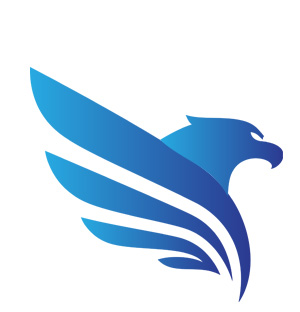Resilient Workforce Strategies: Assisting Professionals in Achieving Goals with Success While Working Abroad
In today’s globalized world, working abroad offers incredible opportunities for personal and professional growth. However, it also presents unique challenges that require resilience and strategic planning. Here, we explore effective strategies to help professionals achieve their goals and succeed in international assignments.
1. Understanding the Importance of Resilience
Adapting to New Environments
Resilience is the ability to adapt to new and often challenging environments. Working abroad means navigating different cultures, languages, and business practices. A resilient mindset helps professionals stay flexible and open to change.
Overcoming Challenges
Challenges are inevitable when working in a foreign country. These may include cultural misunderstandings, language barriers, and homesickness. Building resilience equips professionals with the tools to overcome these obstacles and maintain focus on their goals.
2. Building Cultural Competence
Learning the Local Culture
Understanding the local culture is crucial for success. Professionals should invest time in learning about the customs, traditions, and social norms of the host country. This knowledge facilitates smoother interactions and fosters mutual respect.
Language Skills
While it may not be possible to become fluent in the local language quickly, learning basic phrases can go a long way. Language skills enhance communication and help in building relationships with local colleagues and clients.
3. Establishing a Support Network
Connecting with Fellow Expats
Joining expat communities can provide a valuable support network. Fellow expats can offer advice, share experiences, and provide a sense of belonging in a new country. These connections can be both professionally and personally enriching.
Maintaining Relationships Back Home
Staying connected with family and friends back home is essential for emotional well-being. Regular communication helps in coping with the challenges of living abroad and provides a support system during difficult times.
4. Setting Clear Professional Goals
Defining Success
Before embarking on an international assignment, professionals should clearly define what success looks like for them. Setting specific, measurable, achievable, relevant, and time-bound (SMART) goals can guide their efforts and keep them motivated.
Regular Self-Assessment
Periodic self-assessment helps in tracking progress toward goals. Professionals should reflect on their achievements and areas for improvement, adjusting their strategies as needed to stay on course.
5. Embracing Continuous Learning
Professional Development
Working abroad offers unique opportunities for professional development. Professionals should seek out training programs, workshops, and conferences that can enhance their skills and knowledge. This continuous learning contributes to career growth and success.
Cultural Insights
Immersing oneself in the local culture provides valuable insights that can be applied to professional interactions. Understanding cultural nuances can improve negotiation skills, enhance teamwork, and lead to better business outcomes.
6. Effective Time Management
Balancing Work and Personal Life
Achieving work-life balance is crucial for long-term success and well-being. Professionals should establish clear boundaries between work and personal time, ensuring they have time to relax and recharge.
Prioritizing Tasks
Effective time management involves prioritizing tasks based on their importance and urgency. Professionals should use tools like to-do lists and calendars to organize their schedules and stay productive.
7. Seeking Mentorship
Finding Local Mentors
Local mentors can provide invaluable guidance and insights. They can help navigate the local business landscape, offer career advice, and introduce professionals to key networks.
Maintaining Mentorship Relationships
Maintaining relationships with mentors from home can also be beneficial. These mentors can offer a different perspective and support during the transition period.
8. Leveraging Technology
Staying Connected
Technology plays a crucial role in staying connected with both professional and personal networks. Tools like video conferencing, social media, and messaging apps facilitate communication and collaboration across distances.
Utilizing Professional Platforms
Professional platforms like LinkedIn can help in building a global network. Professionals should actively engage with these platforms to expand their connections and stay updated with industry trends.
9. Demonstrating Flexibility and Patience
Adapting to Different Work Styles
Different countries have different work styles and expectations. Demonstrating flexibility and patience in adapting to these differences is key to building effective working relationships and achieving professional goals.
Handling Setbacks Gracefully
Setbacks are a part of any professional journey, especially when working abroad. Handling setbacks with grace and using them as learning experiences contributes to building resilience and long-term success.
10. Celebrating Achievements
Recognizing Milestones
Recognizing and celebrating milestones, both big and small, is important for maintaining motivation. Acknowledging achievements provides a sense of accomplishment and encourages continuous effort towards goals.
Sharing Successes
Sharing successes with colleagues and loved ones can provide additional encouragement and support. It also helps in building a positive professional reputation.
Working abroad can be an incredibly rewarding experience, but it requires resilience, strategic planning, and continuous learning. By implementing these strategies, professionals can navigate the challenges of international assignments, achieve their goals, and enjoy a successful and fulfilling career abroad.


